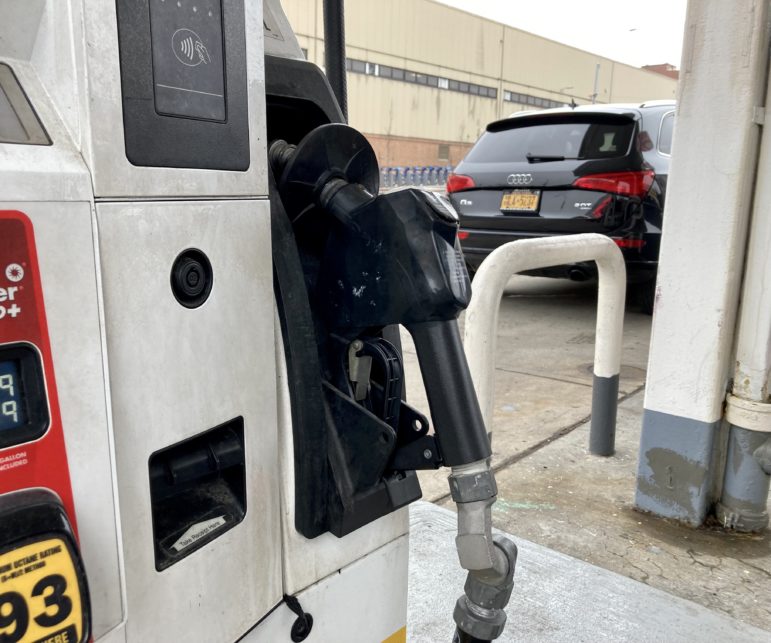Twelve of the gas stations in the consent judgment are in environmental justice areas — areas of low-income individuals or communities of color, who are disproportionately exposed to environmental burdens.

Jeanmarie Evelly
Lea la versión en español aquí.
More than a dozen gas stations in the New York metropolitan area accused of not following leak-prevention legislation from underground storage containers have reached a settlement agreement with the U.S. Attorney’s Office for the Eastern District of New York.
The civil lawsuit against Genesis Petroleum, Inc. and 20 associated The civil lawsuit against Genesis Petroleum, Inc. and 20 associated companies was filed in 2019. The investigation was prompted in 2012 when an Environmental Protection Agency inspector noted one location had been subject to earlier enforcement by the New York State Department of Conservation, according to an official familiar with the case.
In 2021, the case was taken over by the office’s newly formed Environmental Justice Team.
The companies operating the gas stations were found to be in violation of the Resource Conservation and Recovery Act, a federal regulation related to the disposal of hazardous waste.
“Genesis Petroleum flagrantly disregarded measures required by law that are designed to protect the health and safety of the communities in which it operates its gas stations,” said United States Attorney Breon Peace.
Twelve of the gas stations in the consent judgment are in environmental justice areas — areas of low-income individuals or communities of color, who are disproportionately exposed to environmental burdens.
The companies failed to use spill prevention equipment, report suspected leaks, provide records of monitoring, respond to requests by the EPA, among other violations, according to the consent judgment. The gas stations are under multiple brands, including Sunoco, BP, Shell and Mobile in New Jersey, Westchester County and Long Island.
Leakage of underground storage containers can contaminate groundwater, according to EPA Regional Administrator Garcia. It can also lead to toxic vapors or fires and explosions.
“Underground storage tanks are important business infrastructure and are essential for fueling vehicles but when these tanks are not properly maintained or repaired, communities and the environment can be at risk from leaks of hazardous substances,” he said in a press release Thursday.
As part of the agreement, the companies admit no liability but must install equipment to prevent leakages and overfills, cooperate with the EPA and “demonstrate financial responsibility for taking corrective action and for compensating third parties for bodily injury and property damage caused by accidental releases,” among other measures, the agreement reads. The company linked to all gas stations in the consent judgment will also pay a civil penalty of $250,000.
City Limits attempted to reach the owner of the companies and his lawyer for a request to comment and will update this article pending a response. Before the court approves the consent agreement, the public is able to comment to the Department of Justice for 30 days while the judgment is lodged with the district court.









